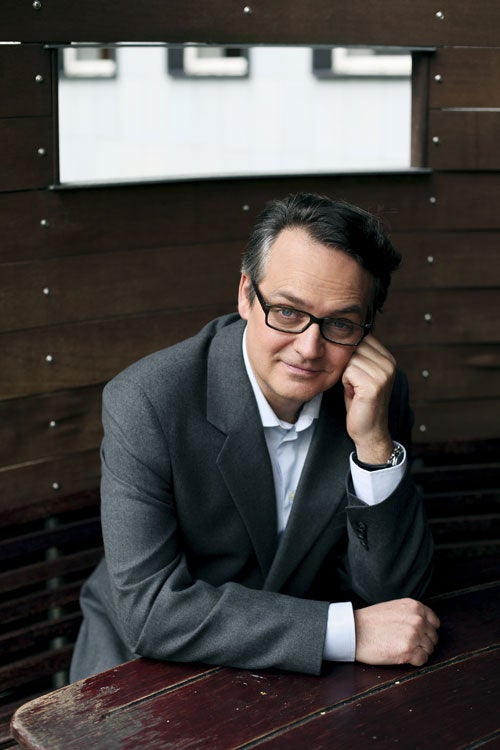Doomed! The new teen book genre
Dystopian fiction is swiftly taking over from vampires and werewolves

Lovesick vampires, angst-ridden werewolves and troubled wizards are to be cast aside as young readers turn to gritty, dystopian narratives filled with post-apocalyptic societies and climate catastrophe.
Sales of "paranormal romance" novels for teenagers, which exploded in the wake of Stephenie Meyer's hugely successful Twilight saga, have seen a decline in the past year. Already Hollywood producers are scrabbling to sign up the new young glums.
As the literary industry gathers for London Book Fair this week, publishers believe they have seen the future, and it is thoroughly miserable. "Dystopia is definitely the buzzword at the moment," said Emma Young, senior editor at Macmillan Children's Books. "It was the big thing at the Bologna Children's Book Fair, and we've already had three agents pitch us dystopian titles for the London Book Fair."
Macmillan has just launched its latest teen-apocalypse title: Dark Inside by the Canadian author Jeyn Roberts. Set in a futuristic America devastated by earthquakes, it is being marketed as The Road meets 28 Days Later.
Penguin anticipates high levels of interest in its new series The Enemy, Charlie Higson's dark vision of a future where everyone over the age of 14 has turned into flesh-eating zombies. Excitement is also building around Momentum, the latest from Saci Lloyd, author of the Carbon Diaries novels, which depict a near-future London subjected to carbon dioxide rationing.
Young adult fiction is big business. Between 2008 – when the last Twilight novel and the first Twilight film were released – and 2009, the market almost doubled in size. This year, despite sales having dropped slightly, the teenage fiction market is worth £48m, according to industry analysts Nielsen BookScan. While the Twilight saga, which has sold more than five million copies in the UK, and the Vampire Diaries series still outsell dystopian titles, the market for "paranormal romance" appears saturated.
Perhaps the most successful in the genre is US author Suzanne Collins's Hunger Games trilogy, which have sold 150,000 copies in the UK since 2008. Set in a post-apocalyptic America, the novels depict the lives of teenagers forced to take part in gladiatorial conflict for televised entertainment. Lionsgate Entertainment has just bought the film rights. And Ridley Scott has secured pre-publication rights to film Moira Young's survival story Blood Red Road, which will be published by Scholastic in June.
Sarah O'Dedina, children's publisher at Bloomsbury, said the new trend represents a reaction against the escapism of Twilight and its ilk. "These are edgy, thought-provoking books which raise questions about what we're doing to our society and planet. They put the modern world under the magnifying glass."
Saci Lloyd added: "The best dystopia is a lens for looking at contemporary society. I like books that get children reading, and if that means vampires and werewolves then so be it, but I think reality is a more interesting topic. Who would have thought that dystopia would finally drive the stake through the vampire's heart?"
Plague, by Michael Grant
All the adults suddenly disappear from a small California town. The prepubescent survivors are shut off from civilisation and begin battling for supremacy.
Dark Inside, by Jeyn Roberts
Massive widespread earthquakes devastate the planet. Ancient evil is unleashed, and four teenagers try to make the best of it.
Momentum, by Saci Lloyd
The city is London in not-too-distant future: energy wars have laid waste to the world; oil prices are sky high; and the poor have been herded into ghettos by an authoritarian regime.
The Enemy/The Dead, by Charlie Higson
All the adults in London are infected by a horrific disease that turns them to cannibalistic zombies. Children are forced to retreat to supermarket fortresses.
The Declaration, by Gemma Malley
Science has conquered the ageing process, but now the Earth is overpopulated. There's no room for youth, and giving birth is a crime.
Matched, by Ally Condie
Authoritarian government decides who people love, where they work and when they die. A teenage girl is torn between passion and obedience.
Inside Out, by Maria V Snyder
The class war has gone mad. Society is split into two layers – the Uppers who live above ground and the Lowers beneath. Revolution is in the air.
The Hunger Games, by Suzanne Collins
Children are forced into gladiatorial contests by an evil government in a post-apocalyptic society called Panem. Last kid standing – alive – wins.
Subscribe to Independent Premium to bookmark this article
Want to bookmark your favourite articles and stories to read or reference later? Start your Independent Premium subscription today.

Join our commenting forum
Join thought-provoking conversations, follow other Independent readers and see their replies